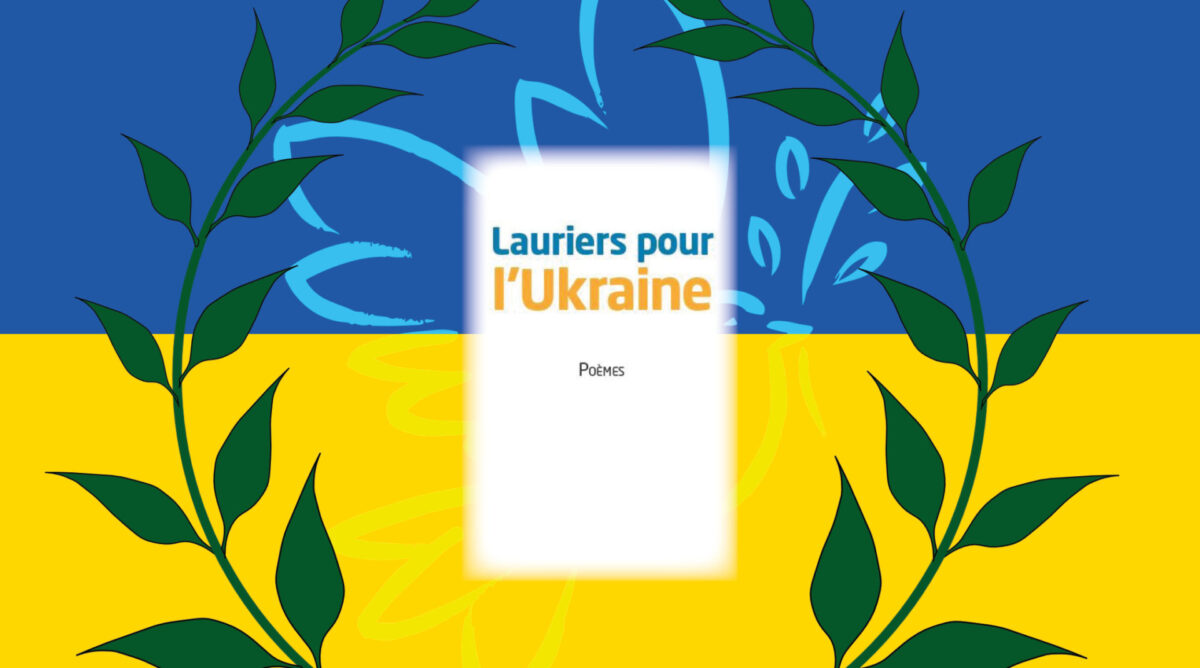
Within the structure “Les impliqués Editeur”, Bernard Anton has presented collections of poetry, the most recent of which are “Célébrades” and “Montagnes de cendres”, between 2020 and 2022. He is now releasing his new collection on June 3.
Behind these poignant books, similar to “Lauriers pour l’Ukraine”, is Bernard Anton. This professor specializing in humanism and poetry has distinguished himself multiple times with this art originating from Japan, the haiku. Designed to capture often fleeting scenes through effective imagery that celebrates and describes the present moment. In this short work, the ultra-prolific author tackles an unprecedented global crisis. Previously, the writer had already highlighted his life’s battles, including his commitment to environmental protection. This defender of animal rights and nature more broadly was inspired by Brigitte Bardot in the Célébrades. Here, he reiterates by dedicating part of the work to her role in the western “Pétroleuses”, where she shares the screen with Claudia Cardinale. But rather than dedicating this collection to the famous “BB,” the author takes a much darker turn, with a significant part of the book exposing the terror and atrocities of war. From a very animistic perspective, Bernard Anton gives life to a planet suffering as well—from armed conflicts.
As a reminder, animism is a belief in which a person attributes a soul to inanimate objects, which can also concern animals or even places like mountains, for example. It is very widespread in indigenous cultures of Native Americans, and it is interesting to note that the author currently lives in Quebec. The Indigenous peoples of Quebec are Algonquian, Iroquois, and Inuit. Many peoples with complex spiritualities share common myths. Has he drawn inspiration from the shamans and clans around him, to define his own vision of the world and the afterlife? In this contemplation of life crushed by tanks and armed troops, Bernard Anton ponders the future. “Tears for Ukraine” take the form of terrible haikus, outraged in a senseless war. Ultimately, the angle chosen by the author seems to suggest that human cruelty is the greatest evil on the planet.
But since Bernard Anton is not moralizing, he primarily calls for a deeper reflection on human impact on Earth. In an era where the climate emergency is more dramatic than ever, it is important to shake consciences and point out uncomfortable truths. In this battle between Ukrainians and Russians, the battlefield is already declining. Indeed, when wars are waged and destroy, fauna and flora suffer. Of course, humans primarily defend their own species: the ecosystem is an afterthought. But isn’t this precisely the reason for this ongoing massacre, which stifles life? By acting this way, Man isolates himself from his world, to which he belongs. Perhaps it is time to think “globally” and play on this utopian unity, admittedly, but one that brings hope.
Since Bernard Anton is a prolific author who draws his inspirations from his surroundings, he does not intend to limit himself to his opposition to war. To better enhance this message of peace, he decides to include other parts, much shorter, but which seem to take the form of a puzzle. Approached side by side, each piece fits perfectly together. Whether intentional or not, the result gives an impression of a tableau. The first thirty-nine pages are devoted to Ukraine, with the remaining haikus divided into “pieces,” fragments of life that compose the face of the world. A face that is neither perfect and pure, nor corrupted to the bone and hopeless. In the section “Entre la peau et la pulpe”, the writer contemplates his tranquil environment where animals live in harmony with humanity. The seasons roll on and survive in a controlled rhythm governed by the energy of a nature in motion. The “Libertades” are more focused on relationships with others, the body, love… While the “Jeux de grâce” concentrate on the figure so adored by the author, Brigitte Bardot. The end of the poem collection unsettles and disturbs the reader. In the “Dysharmonie”, the latter encounters a frightened pen that has abandoned everything… And ultimately takes comfort behind a mask. What kind of mask are we talking about here? Is it Venetian or surgical?
It is difficult to remain indifferent to such a sincere and authentic project. Readers discovering Bernard Anton find themselves in possession of a work that well represents him: committed, resolutely oriented towards others, sensual, and sensory.
The author’s website: https://celebrades.fr/